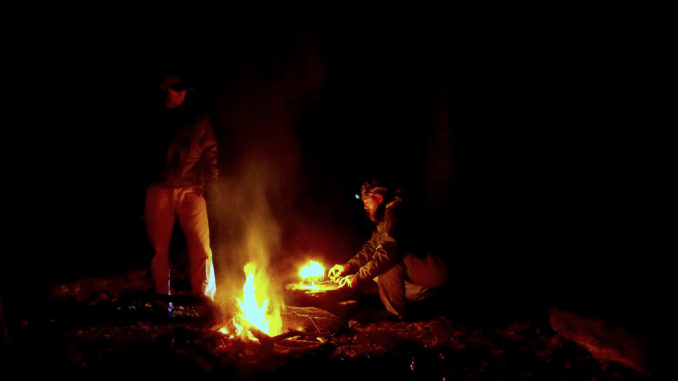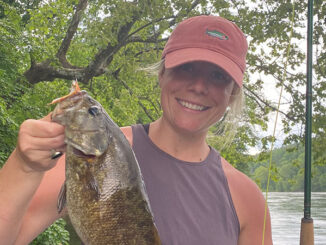
Fee would apply to overnight hikers, campers only.
The National Park Service is considering charging overnight campers and hikers at the Great Smoky Mountains National Park a fee for the first time.
The GSMNP is one of the few parks in the nation that doesn’t charge a fee to visitors, either to visit attractions or drive through the park. The original documents that created the park in 1940 declared it would be open and free to public. No fees have been charged in the park since its creation.
“After 76 years of free camping in the backcountry of the Great Smoky Mountains National Park — never mind that backcountry use is down by some 45 percent since the mid 1990s or that park officials have offered no substantive evidence that fees are needed or will even be used exclusively for backcountry-related matters — they suddenly are proposing significant monetary burdens for backpackers who camp,” said Jim Casada, a native of Bryson City and retired history professor at Winthrop (S.C.) College. “The fees could pose a significant burden on those who can least afford it — young folks, families with young children, and locals who have forebears buried within the Park, and those wanting to fish or enjoy wilderness on a tight budget.”
Fees would come to, at a minimum, $58 for a family of four to spend a weekend hiking into the park and camping in the backcountry.
However, the passage of time and more use of the park apparently have created the need for a change. The park has 14 permanent sheltered camp sites available for overnight campers/hikers on its many trails, but those sites are almost impossible to reserve because the Park Service’s Backcountry Information Center is open only three hours per day, and its phone line often is busy or unstaffed.
As a result, when overnight hikers enter the park, they often find camps filled with people who didn’t make reservations and also apparently cause a large problem with littering and destruction of the surrounding area.
“I’ve seen a lot of abuse of the backcountry camp sites,” Cindy McJunkin of Candler, who camps in the Smokies at least once a month, told the Associated Press. “I’ve had a reservation and get to a camp site, and it’s full with people who didn’t have reservations.
“I’ve often wished if they have rules, then they should have enough staff to make sure the rules are enforced. But if there’s no entrance fee, why should there be an entry fee for backpackers?”
The park requires that all those planning to stay overnight in the backcountry obtain a permit, and those wishing to stay in the 15 shelters and most popular camp sites make a reservation either by phone or in person at the Backcountry Information Center in the Sugarlands Visitor Center near Gatlinburg.
The reservations are supposed to ensure the number of campers on a given night don’t exceed the carrying capacity of the site. Many other less-sought-after sites don’t require a reservation be filed, but users are required to self-register at one of 15 permit stations when they arrive at the Park.
Few apparently follow those rules, even after registration. Lack of sufficient staff to patrol the park adds to these problems.
The Park Service said any fees collected would be used to increase patrols and create a computerized reservation system to take reservations on-line or via a call center 24 hours a day, seven days a week. Reservations would be made by a contractor at www.recreation.gov, which currently is used to book front-country camp sites.
Proposed fee-structure alternatives include:
• $10 per reservation + $5 per person;
• $10 per reservation + $2.25 per person per night;
• $4 per person per night.
Reservations also would be required for all backcountry camping trips.
“We feel that the proposed changes offer better customer service to backpackers, as well as reducing impacts to Park resources,” said Dale Ditmanson, the park superintendent. “In order to implement these changes, we’re considering several fee structures that would cover both the reservation contractor’s fee and the cost of field rangers and staff at the Backcountry Information Center.”
No fees are being considered for day hikers or campers, only overnight visits.





Be the first to comment